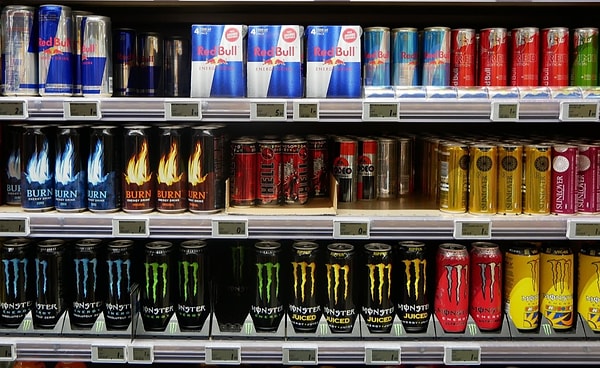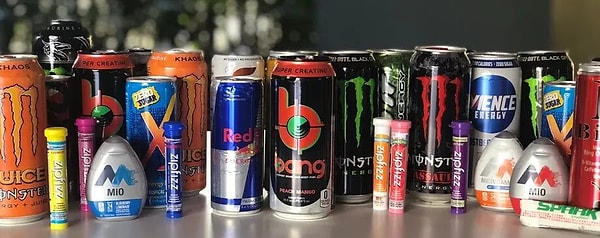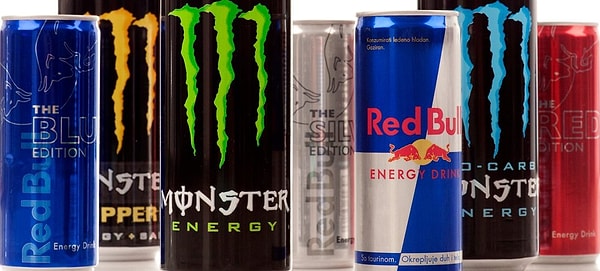The Hidden Dangers of Energy Drinks: The Serious Health Risks
In today's fast-paced world, energy drinks have become a common go-to solution for many individuals seeking a quick boost of energy to keep up with demanding schedules. Marketed as revitalizing beverages that promise increased alertness, focus, and performance, energy drinks have surged in popularity among people of all ages, especially younger demographics. However, beneath their flashy marketing campaigns and appealing flavors lie a range of serious health concerns that are often overlooked. This comprehensive exploration delves into the hidden dangers of energy drinks, shedding light on the potential risks they pose to our well-being.
Understanding Energy Drinks:

Energy drinks are beverages designed to provide a rapid increase in energy levels, typically through a combination of caffeine, sugar, vitamins, amino acids, and herbal extracts. They are heavily marketed as aids for boosting physical stamina, mental alertness, and overall performance, making them attractive options for athletes, students, professionals, and individuals seeking an energy boost during long hours or intense activities.
The Ingredients:

One of the primary components of energy drinks is caffeine, a stimulant known for its ability to temporarily enhance alertness and reduce fatigue. While moderate caffeine consumption is generally considered safe for most adults, the high levels found in energy drinks can lead to overstimulation, increased heart rate, elevated blood pressure, and even cardiac arrhythmias, especially in individuals with underlying heart conditions or sensitivity to caffeine.
In addition to caffeine, energy drinks often contain high amounts of sugar or artificial sweeteners to improve taste and enhance the perceived energy-boosting effects. Excessive sugar intake has been linked to a host of health issues, including obesity, type 2 diabetes, tooth decay, and metabolic disorders. Moreover, the combination of caffeine and sugar in energy drinks can contribute to energy crashes, mood swings, and disrupted sleep patterns, leading to a cycle of dependency and potential long-term health consequences.
Health Risks Associated with Energy Drinks:

Cardiovascular Effects: The stimulant properties of caffeine in energy drinks can have significant impacts on cardiovascular health. Excessive consumption has been linked to increased heart rate, elevated blood pressure, and irregular heart rhythms, particularly in individuals with preexisting heart conditions or hypertension. Prolonged exposure to high caffeine levels may also contribute to the development of cardiovascular diseases over time.
Neurological and Psychological Impact: Regular consumption of energy drinks has been associated with adverse effects on the central nervous system, including nervousness, anxiety, irritability, and insomnia. The combination of caffeine and other stimulants can overstimulate the brain, leading to cognitive impairment, poor concentration, and mood disturbances. Long-term use may contribute to dependency, withdrawal symptoms, and heightened risk of mental health disorders.
Metabolic Disruptions: The high sugar content in energy drinks poses significant risks to metabolic health. Excessive sugar intake can lead to insulin resistance, weight gain, and increased risk of metabolic syndrome and type 2 diabetes. Additionally, artificial sweeteners found in some energy drinks have been linked to metabolic imbalances, digestive issues, and altered gut microbiota, raising concerns about long-term metabolic complications.
Renal and Liver Concerns: Prolonged consumption of energy drinks has been associated with adverse effects on renal and liver function. The combination of caffeine, sugar, and additives may contribute to kidney stones, renal dysfunction, and liver damage over time. Individuals with preexisting renal or hepatic conditions are particularly vulnerable to these risks and should exercise caution when consuming energy drinks.
Bone Health: High caffeine intake, a common feature of energy drinks, has been linked to calcium excretion and reduced bone mineral density, potentially increasing the risk of osteoporosis and fractures, especially in adolescents and young adults whose bone development is still ongoing. Chronic consumption of energy drinks may compromise skeletal health and contribute to long-term musculoskeletal issues.
Regulatory Measures and Public Awareness:

Recognizing the growing concerns surrounding energy drinks, regulatory bodies and health organizations have taken steps to address their potential risks. Some countries have imposed restrictions on caffeine content, labeling requirements, and marketing practices for energy drinks to safeguard public health. Furthermore, educational campaigns and public awareness initiatives have been launched to inform consumers about the potential dangers and encourage moderation or alternative choices for energy supplementation.
Keşfet ile ziyaret ettiğin tüm kategorileri tek akışta gör!


Send Comment